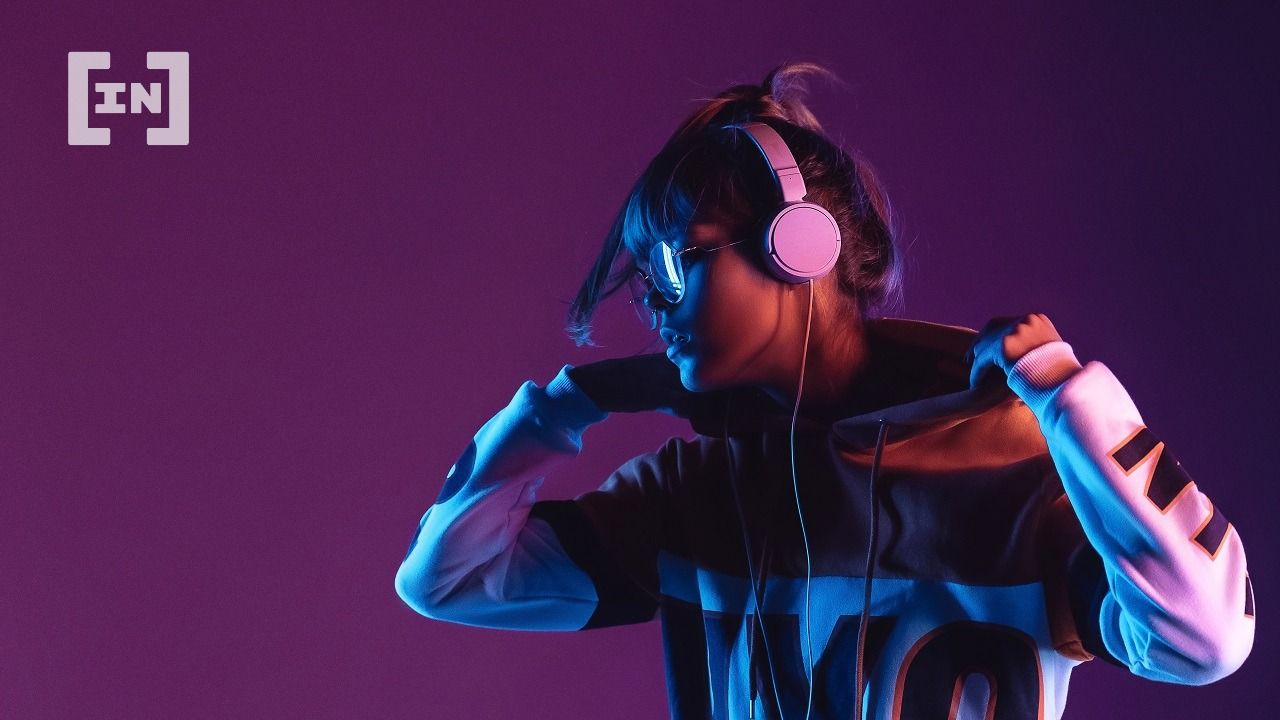Hip-hop is quickly becoming a driving force in Web3 music. While EDM and pop music have been dominating the space, hip-hop has been making inroads. This is due to the fact that hip-hop is arguably the most genuine reflection of the NFT space. And it is the underground artists-not the mainstream rappers who are using their talents to create innovative projects in Web3.
Musicians are now taking advantage of the technology available, creating soundscapes that are both mind-bending and profitable. They’re also leveraging platforms like Ethereum and Flow to create digital assets that can be bought, sold, and traded on a global scale.
This means reaching a much larger audience while at the same time maintaining artistic control. As more hip-hop artists continue to explore their options, it is likely that we will see even more success stories emerge from their involvement with Web3 in the coming year and beyond.
Hip Hop into Web3 in 2023
Hip-hop has greatly benefited from the development of Web3. The decentralized nature of blockchain technology has given power back to indie musicians. As a result, a new generation of NFT creators who grew up with digital tools and platforms are now taking the lead creatively.
The likes of Black Dave, MoRuf and more, are pushing the boundaries of what’s possible. That is, as it relates to independent music on NFT platforms. Together they are helping to shape the future of hip-hop in Web3. They are creating a vibrant and exciting space for artists to thrive.
Yet, with all the buzz the nature of competing blockchain can result in a somewhat siloed system.
Current Web3 music markets are fragmented
Marketplaces are playing a vital role in the Web3 music industry. Fragmentation of blockchains, communities, and user experiences poses challenges for musicians. They must navigate changes in platform onboarding methods and priorities.
Despite the openness of NFTs as transferable assets, they are functionally siloed in the current ecosystem of NFT platforms. This is because they are only viewable on the blockchain across multiple platforms in an ostensibly manner. This presents artists with a unique challenge to decide where and how they want to court fans. Some are seeking exclusive partnerships-others are casting a wider net.
There are three distinct avenues Web3 musicians are using to release music:
- General NFT marketplaces provide a wide range of services for users looking to buy or sell digital collectibles such as artworks or music.
These platforms offer a variety of features that make them attractive to both buyers and sellers. These features include easy onboarding processes, low fees, secure transactions, and access to a large pool of potential buyers.
- Specialized music-focused marketplaces focus solely on providing services related to buying and selling digital music assets such as albums or singles. These platforms often have more advanced features than generalized platforms.
- Artist-oriented marketplaces as the name implies are geared towards creatives in music, art, film and photography.
Benefits of platform-agnostic collaboration
Despite the siloed system, most musicians have not restricted their music releases to a single market. Instead, they have tried to reach as many people as possible by distributing their music through multiple channels. This includes both curated and non-curated markets, as well as general and music-specific platforms.
Many artists found favor in one medium, but received scant attention elsewhere. This “spaghetti on the wall” strategy is common when dealing with music NFT marketplaces. It is essentially a process of learning through iteration. The idea being that the larger the mix the greater the chance for collaboration and visibility. In short, you win some, you lose some.
NFT music marketplaces
The emergence of music-specific NFT marketplaces has been a game-changer for Web3 music artists. These platforms provide an opportunity to reach a wider audience and increase the chances of their drops selling out.
For example, Sound.xyz provides a promotional engine around each drop, including dedicated Twitter Spaces premiering the music, which can help boost visibility and sales.
However, not all artists are satisfied with the current options available in terms of curated marketplaces. The barrier of entry is simply too high on many platforms, making it difficult for smaller artists to get noticed.
This highlights the need for more accessible and affordable options that cater to the needs of independent musicians. With more bespoke solutions available, Web3 artists will be able to better capitalize on the potential of NFTs for their careers.
What’s in store for the future of Web3 hip-hop?
The future of Web3 hip-hop is an exciting prospect, as the industry has already seen some major players enter the space. Industry heavies like Soulection and Death Row Records have made moves to explore the crossroads between mainstream hip-hop and Web3 music, with varying degrees of success.
It is not yet known what it will take for mainstream hip-hop to fully adopt Web3. However, with these companies leading the way, it is hoped that this will happen sooner rather than later. The potential for mass adoption of Web3 music is undeniable, and with more companies investing in this space, the impact could be significant. Web3 hip-hop is paving the way for other creatives to follow suit.
Related
Warner Music Group Joins Forces With Polygon to Create Web3 Music Platform
Music Revolution: How Web3 is Utterly Changing Fan Power
Sensorium Teams up With Polygon Studios to Accelerate Web3 Development
Disclaimer
All the information contained on our website is published in good faith and for general information purposes only. Any action the reader takes upon the information found on our website is strictly at their own risk.
Read More: news.google.com









 Bitcoin
Bitcoin  Ethereum
Ethereum  Tether
Tether  XRP
XRP  Solana
Solana  Dogecoin
Dogecoin  USDC
USDC  Lido Staked Ether
Lido Staked Ether  Cardano
Cardano  TRON
TRON  Avalanche
Avalanche  Toncoin
Toncoin  Wrapped stETH
Wrapped stETH  Chainlink
Chainlink  Sui
Sui  Shiba Inu
Shiba Inu  Wrapped Bitcoin
Wrapped Bitcoin  Stellar
Stellar  Hedera
Hedera  Polkadot
Polkadot  WETH
WETH  Bitcoin Cash
Bitcoin Cash  Pepe
Pepe  LEO Token
LEO Token  Hyperliquid
Hyperliquid  Uniswap
Uniswap  Litecoin
Litecoin  Wrapped eETH
Wrapped eETH  Ethena USDe
Ethena USDe  NEAR Protocol
NEAR Protocol  USDS
USDS  Aptos
Aptos  Internet Computer
Internet Computer  Aave
Aave  Mantle
Mantle  Virtuals Protocol
Virtuals Protocol  Cronos
Cronos  POL (ex-MATIC)
POL (ex-MATIC)  Ethereum Classic
Ethereum Classic  MANTRA
MANTRA  Monero
Monero  WhiteBIT Coin
WhiteBIT Coin  Render
Render  Dai
Dai  Artificial Superintelligence Alliance
Artificial Superintelligence Alliance  Bittensor
Bittensor  Filecoin
Filecoin